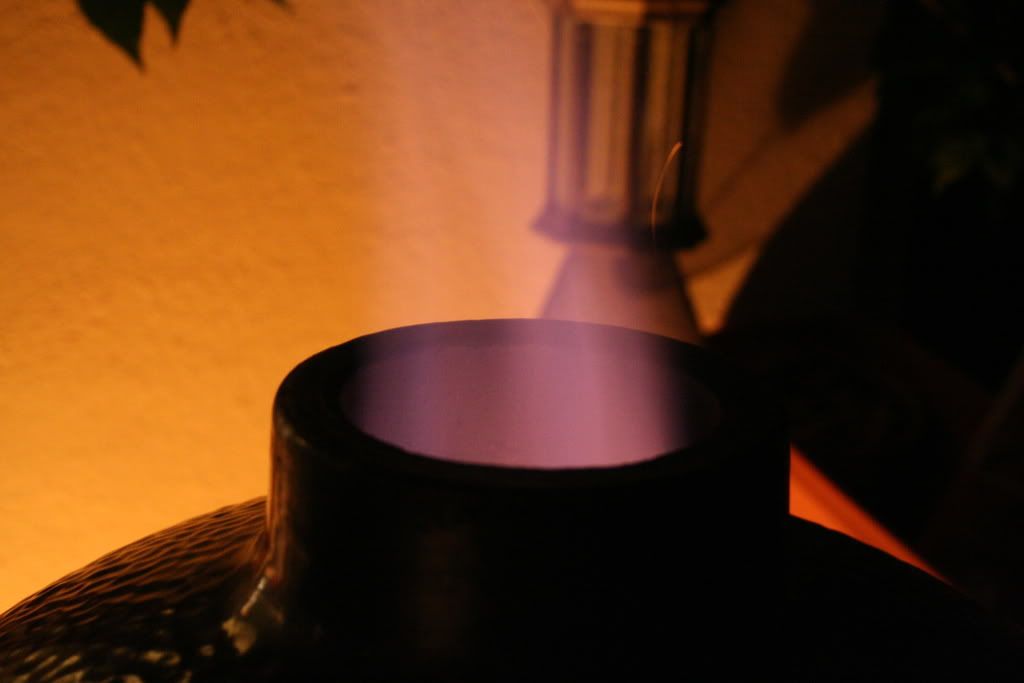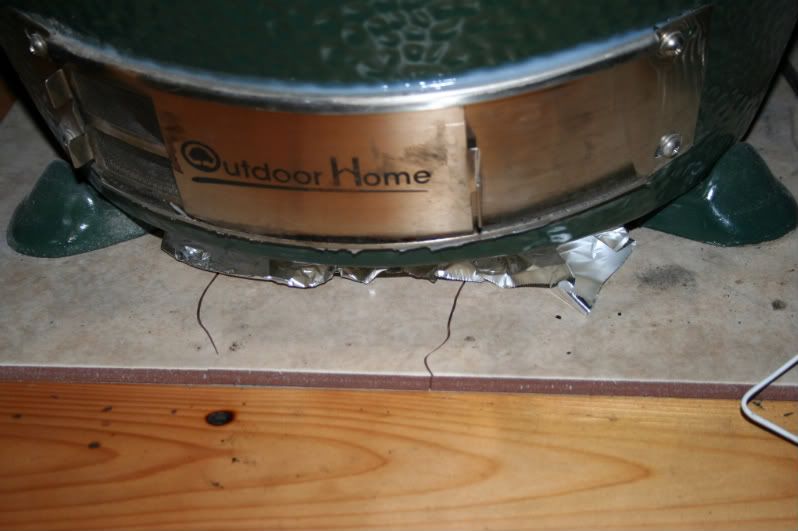Jan 2nd, '09, 11:04
Vendor Member
Posts: 1990
Joined: Apr 4th, '06, 15:07
Location: NYC
Contact:
TIM
Charcoal for boiling water
Any one knows where to get good quality charcoal in the US? Those which don't create bad smoke and clean burning for tetsubin stove. Thanks! I've found some from Japan and cost like $100 US for 3 pounds, and Imen's olive's pit charcoal, but they are too pricey for day use....
Jan 2nd, '09, 11:17
Vendor Member
Posts: 1990
Joined: Apr 4th, '06, 15:07
Location: NYC
Contact:
TIM
I agreed the US charcoal are not made for indoor use, thanks JP. The Japanese/Korean have been burning charcoal stove indoor for Centuries. Given a good flow or fresh air and circulation, I do think is ok to have a stove indoor. But, where can I get some?JP wrote:Any charcoal that I know of in the U.S. is designed for outdoor cooking, and designed to put out some degree of flavor through smoke. I wouldn't burn it indoors, nor would I burn olive pit charcoal or any other kind indoors. Not safe and it will soot up the walls and ceilings eventually.
You could try Korin (locally in NY, in Tribeca, pretty near a cigar shop that maybe you've been to) - they have some good quality Japanese hardwood charcoal, though a bit on the pricey side. You could also try the Japanese market.
I've been experimenting with some from the local Japanese market. It's a pain to get lit, but doesn't seem to have too strong a scent.
I've been experimenting with some from the local Japanese market. It's a pain to get lit, but doesn't seem to have too strong a scent.
Can you tell me more about the brand you found from Japan and where you saw it? We use charcoal often here in Taiwan, and I have good sources that are pretty cheap. US$100 would probably get you a 1-year (or longer) supply, and I'd be happy to hook you up with some.
Get in touch with me through my blog at taiwanteaguy.com, and I'll see what I can do.
Get in touch with me through my blog at taiwanteaguy.com, and I'll see what I can do.
"The meaning of life can be found in a good cup of tea."
Check out more Taiwan tea stories (with photos) at taiwanteaguy.com
Check out more Taiwan tea stories (with photos) at taiwanteaguy.com
Re: Charcoal for boiling water
TIM wrote:Any one knows where to get good quality charcoal in the US? Those which don't create bad smoke and clean burning for tetsubin stove. Thanks! I've found some from Japan and cost like $100 US for 3 pounds, and Imen's olive's pit charcoal, but they are too pricey for day use....
Charcoal burns to produce carbon monoxide, adequate ventillation beats a body bag. Look for all natural hardwood charcoal for grilling but do the initial burn outside and transfer the partly burned coals to your stove as much of the volatiles will have burnt off.
If you mean me, I got Binchotan from the local japanese market - the kind usually used for grilling in those little clay stoves. It's usually fairly low smoke.teaguy wrote:Can you tell me more about the brand you found from Japan and where you saw it?
It's similar to this:
http://www.korin.com/product.php?pid=1673&df=korin
I was at Imen's shop yesterday, and she uses a little Japanese self-lighting charcoal (I forget the brand, but it's from Trader Joes, and apparently doesn't have the same stuff that US self-lighting charcoal does) to get the stove lit. Then she uses hardwood charcoal on top.
I feel like some of the products made from extruded coconut shells or olive husks might work as well.
The Chaozhou olive pit charcoal really is fantastic for making tea. It has barely any smoke, but what there is has a very subtle and pleasant fragrance, and it's pretty compact, and seems to produce less ash than wood charcoal. Getting it lit is hard, though... I guess Imen used to put it in a basket over a gas burner, and got it started that way. Now that it's harder to ship olive pit charcoal from China, I've been looking for sources in Japan, Taiwan, and even Spain, but I haven't found any yet who will ship to the US. (I found this site in Spain: http://www.charcolive.com/english/index_e.html)
*confused*
What is a tetsubin stove? You have a Japanese kettle that can be placed directly on a heat source, correct? Most tetsubin aren't designed for heating water.
I wouldn't burn charcoal indoors. Apart from the black residue deposited on your pot, charcoal, wood, coal and other typical biomass fuels require an efficient exhaust fan/vent when combusted indoors. It's an air quality issue.
While a bit unorthodox (since you are aiming for a traditional tea ceremony setting), consider clean-burning gel fuels used for indoor stoves or smaller versions used for heating food chafing dish. Or use a small hot plate for heating your water.
http://www.hotplates.com/
http://www.envirofitcookstoves.org/
Photo of an inexpensive smokeless indoor stove:
http://www.treehugger.com/files/2008/07 ... -usage.php
What is a tetsubin stove? You have a Japanese kettle that can be placed directly on a heat source, correct? Most tetsubin aren't designed for heating water.
I wouldn't burn charcoal indoors. Apart from the black residue deposited on your pot, charcoal, wood, coal and other typical biomass fuels require an efficient exhaust fan/vent when combusted indoors. It's an air quality issue.
While a bit unorthodox (since you are aiming for a traditional tea ceremony setting), consider clean-burning gel fuels used for indoor stoves or smaller versions used for heating food chafing dish. Or use a small hot plate for heating your water.
http://www.hotplates.com/
http://www.envirofitcookstoves.org/
Photo of an inexpensive smokeless indoor stove:
http://www.treehugger.com/files/2008/07 ... -usage.php
Jan 3rd, '09, 22:18
Posts: 1051
Joined: Jul 7th, '07, 01:37
Scrolling: scrolling
Location: Portland, OR
Contact:
ABx
Although this isn't your first post here, this is my first response to you so welcome to the forumIntuit wrote:*confused*
What is a tetsubin stove? You have a Japanese kettle that can be placed directly on a heat source, correct? Most tetsubin aren't designed for heating water.
I wouldn't burn charcoal indoors. Apart from the black residue deposited on your pot, charcoal, wood, coal and other typical biomass fuels require an efficient exhaust fan/vent when combusted indoors. It's an air quality issue.
While a bit unorthodox (since you are aiming for a traditional tea ceremony setting), consider clean-burning gel fuels used for indoor stoves or smaller versions used for heating food chafing dish. Or use a small hot plate for heating your water.
http://www.hotplates.com/
http://www.envirofitcookstoves.org/
Photo of an inexpensive smokeless indoor stove:
http://www.treehugger.com/files/2008/07 ... -usage.php
Most people here are aware of the alternatives, as most of us have electric kettles of various sorts. Using charcoal to heat a cast iron or ceramic kettle, however is traditional and may, in fact, make a difference. How much of a difference may be debatable, however many of us here are into the culture, history, and tradition of tea as much as the beverage itself
Understand the wish for authenticity, but its rather doubtful that charcoal will impart a 'special flavor' to the hot water. My recommendation is to be practical and safe and employ an alternative fuel.
In a Furo or diminutive version of a brazier, a Binkake, you aren't likely to actually *see* the heat source because these braziers are typically barrel shaped. A smokeless fuel can serve just as well without spoiling the ambiance of traditional tea preparation.
In a Furo or diminutive version of a brazier, a Binkake, you aren't likely to actually *see* the heat source because these braziers are typically barrel shaped. A smokeless fuel can serve just as well without spoiling the ambiance of traditional tea preparation.
Actually, charcoal is the best way to heat water for making tea. Electricity, gas, alcohol burner, whatever, all affect the water, and therefore the tea. It's doubtful because it seems hard to believe, but I've seen a blind taste test - just hot water - and the guy tasting could easily discern the various heat sources.
Heating the water too slowly or too quickly also changes the characteristics of the water (not so much the flavor) which can then affect the tea.
I don't think I'll ever get to that level of tea drinking myself, but I have had tea made with water from the same source heated with charcoal and gas, and the charcoal heated water seems to enhance the subtler nuances of the tea.
Also, it's really pretty safe, at least here in Taiwan. In the past 10 years, I've yet to read or hear of a tea house burning down, yet they have either charcoal or alcohol burners sitting on tatami mats all day & night. It's never smoky, and I've yet to encounter ventilation issues.
I will put the question to some experts and report back on their opinions.
Heating the water too slowly or too quickly also changes the characteristics of the water (not so much the flavor) which can then affect the tea.
I don't think I'll ever get to that level of tea drinking myself, but I have had tea made with water from the same source heated with charcoal and gas, and the charcoal heated water seems to enhance the subtler nuances of the tea.
Also, it's really pretty safe, at least here in Taiwan. In the past 10 years, I've yet to read or hear of a tea house burning down, yet they have either charcoal or alcohol burners sitting on tatami mats all day & night. It's never smoky, and I've yet to encounter ventilation issues.
I will put the question to some experts and report back on their opinions.
"The meaning of life can be found in a good cup of tea."
Check out more Taiwan tea stories (with photos) at taiwanteaguy.com
Check out more Taiwan tea stories (with photos) at taiwanteaguy.com
As I've been thinking for a while of heating my tetsubin with charcoal in a more traditional burner setting, I am very interested to hear what the consensus is on this. I never considered that burning appropriate charcoal indoors would be a health hazard... is it really more harmful than burning the gas off the stove in your kitchen?
Jan 5th, '09, 12:19
Vendor Member
Posts: 1990
Joined: Apr 4th, '06, 15:07
Location: NYC
Contact:
TIM
Thanks wyardley, that is a good source! And I can also enjoy a smoke on the way : )wyardley wrote:If you mean me, I got Binchotan from the local japanese market - the kind usually used for grilling in those little clay stoves. It's usually fairly low smoke.teaguy wrote:Can you tell me more about the brand you found from Japan and where you saw it?
It's similar to this:
http://www.korin.com/product.php?pid=1673&df=korin
I was at Imen's shop yesterday, and she uses a little Japanese self-lighting charcoal (I forget the brand, but it's from Trader Joes, and apparently doesn't have the same stuff that US self-lighting charcoal does) to get the stove lit. Then she uses hardwood charcoal on top.
I feel like some of the products made from extruded coconut shells or olive husks might work as well.
The Chaozhou olive pit charcoal really is fantastic for making tea. It has barely any smoke, but what there is has a very subtle and pleasant fragrance, and it's pretty compact, and seems to produce less ash than wood charcoal. Getting it lit is hard, though... I guess Imen used to put it in a basket over a gas burner, and got it started that way. Now that it's harder to ship olive pit charcoal from China, I've been looking for sources in Japan, Taiwan, and even Spain, but I haven't found any yet who will ship to the US. (I found this site in Spain: http://www.charcolive.com/english/index_e.html)
Cheers. T

